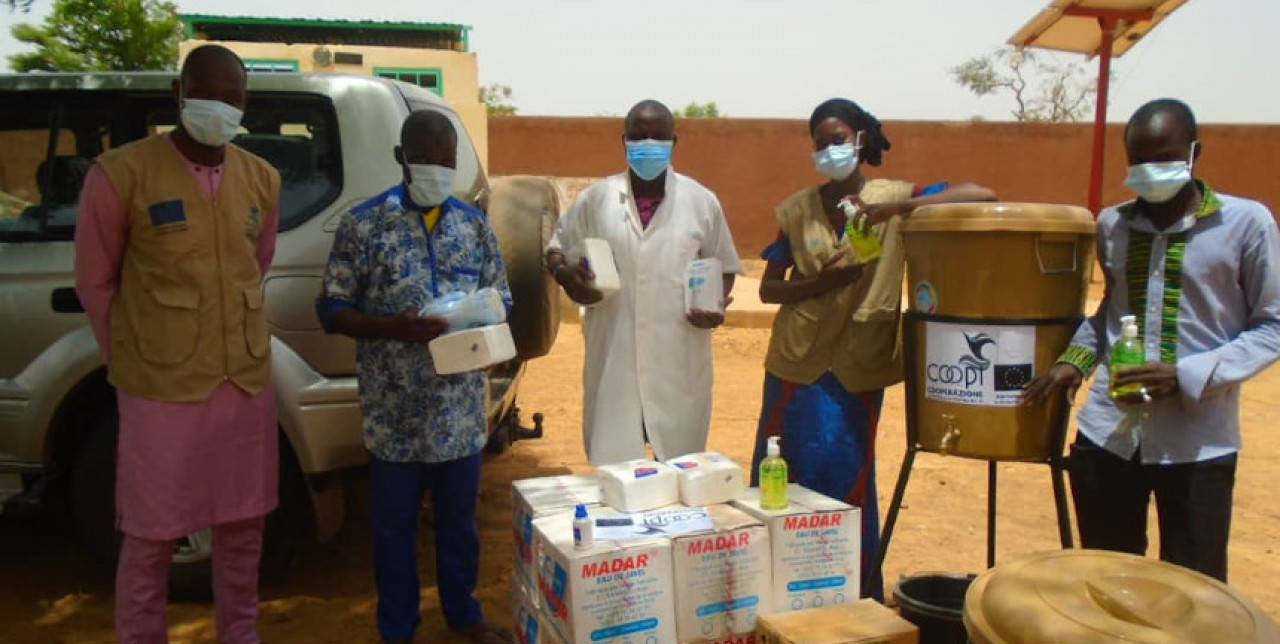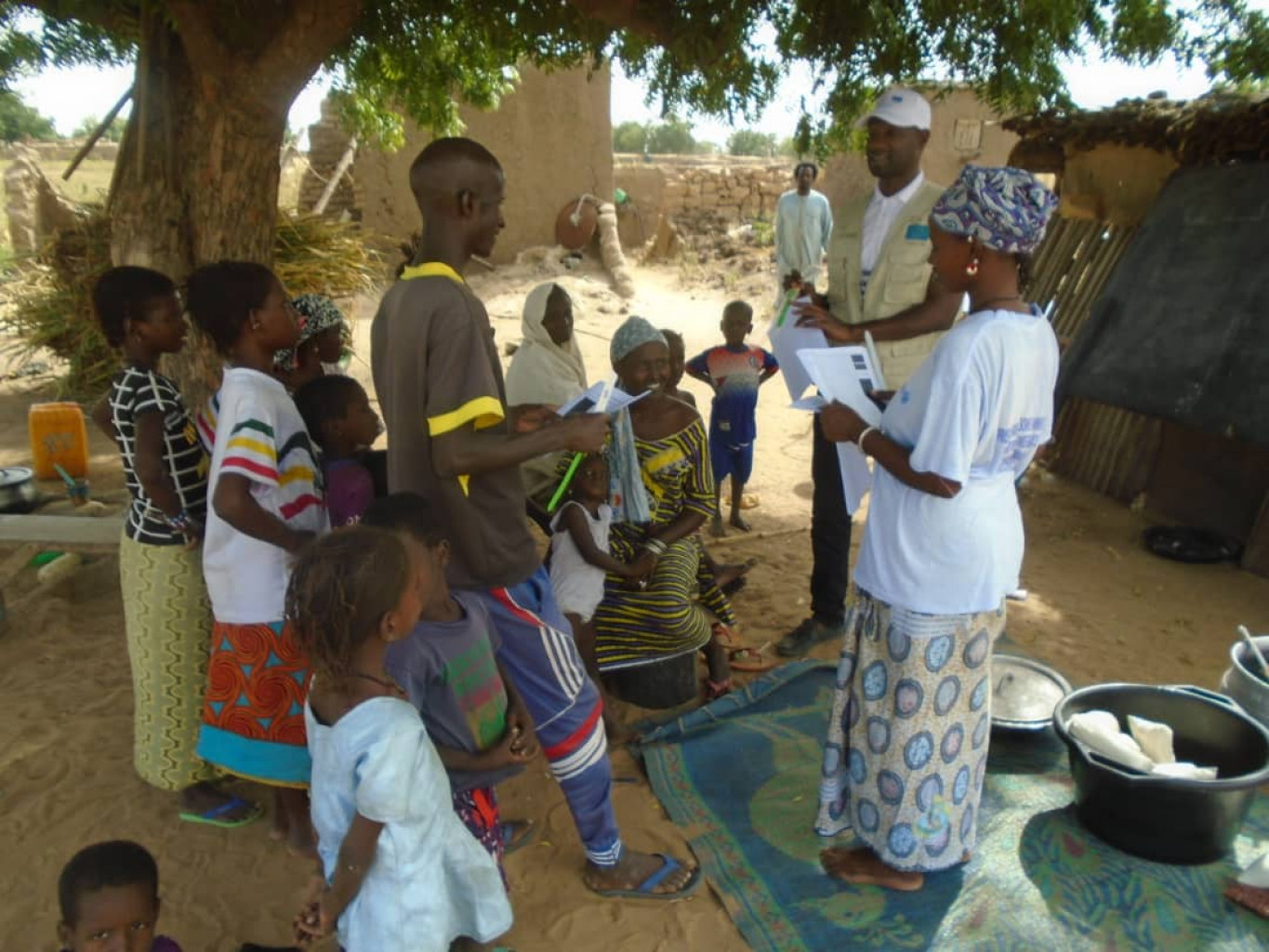14-12-2020 | di COOPI
COVID-19. COOPI continues its commitment in Mali
Since May 2020, COOPI - Cooperazione Internazionale together with Terres Des Hommes is engaged in the project "Complementary response COVID-19 to the emergency medical and nutritional care of vulnerable populations in Ségou and Mopti", developed to complement the project "Health and nutritional response to the multidimensional crisis in the region of Segou and Mopti", both funded by the European Civil Protection and Humanitarian Aid Operations (ECHO) and partly by the Italian Cooperation.
The new project focuses on the process of identification and management of positive cases, provision of preventive material, sensitisation of communities and strengthening of coordination channels at community level, with the aim of reaching about 22,000 direct beneficiaries. This is a continuation of an action already carried out by COOPI and Terres des Hommes, whose aim is to reinforce the intervention against child malnutrition in the Segou and Mopti region, adding components of prevention and protection from Covid-19 and coordination of state actors, in accordance with national guidelines and field needs.
Cristina Cardarelli, COOPI's head of mission in Mali, explains:
"Our strategy is to implement multi-sectoral responses to the prevention of acute malnutrition and to directly strengthen the state health system. The interventions, developed in line with the national plans, focus on prevention, surveillance and patient care, and are implemented through the involvement and coordination of all local actors involved in nutrition activities. The Covid-19 pandemic has forced a readjustment of the strategy to allow continuity of activities, limiting the spread of the virus and strengthening prevention systems”.
In Mali, the spread of the COVID-19 outbreak is part of a multidimensional crisis context, characterised by food insecurity, inadequate government services - particularly health services, environmental vulnerability, lack of resources and strong political and security instability. Specifically, the intensification of ethnic conflicts and the advance of jihadist or self-defence groups aggravates the situation of extreme precariousness and vulnerability in the regions of Segou and Mopti. This context severely limits the government's ability to prevent the spread of the epidemic and to provide health care to those infected, as well as to ensure the quality of and access to the general health services needed by the population, particularly for patients suffering from severe and acute malnutrition.




 Mali
Mali
